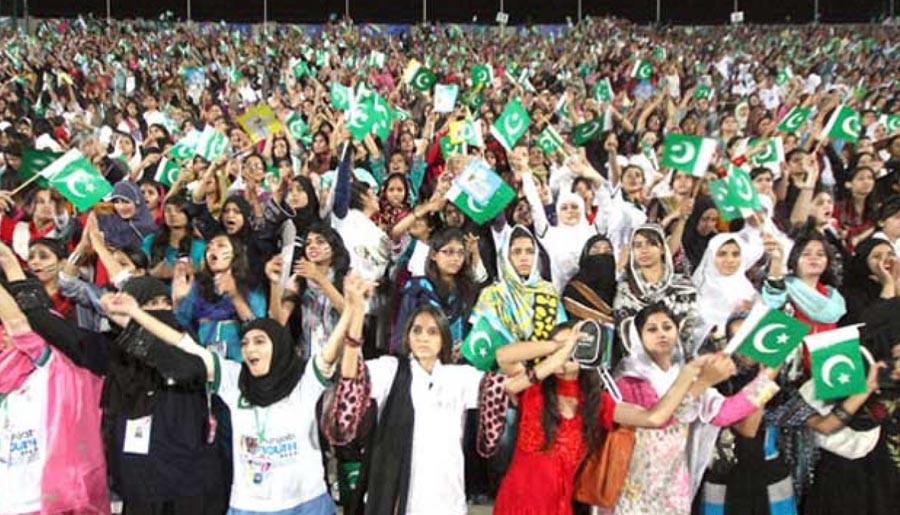
There is a need to understand our political institutions to increase the number of voters who are interested in the political process

The fragmented education system in Pakistan produces a range of mentalities from religious fundamentalism to liberal cosmopolitanism, which, in turn, creates chaos and confusion among youth.
We have to rethink our socio-political dynamics to enhance political participation. Young Pakistanis have become alienated and detached from political engagement. Therefore, an interest in politics, political participation and political knowledge is also low. Political literacy begins with understanding that there is a direct correlation in everything we do -- between knowledge and interests. The more knowledgeable we become about a subject, the more interested we are in the subject. Conversely, the more interested we are in a subject, the more knowledge we seek about it.
I think, the same pattern may be observed within the political system of the country. There is a dire need to develop an understanding about political institutions in order to increase the number of knowledgeable voters who might have interest in the political process.
Politics is directly concerned with developing knowledge and understanding the government and society. The interaction of people, ideas and institutions provides focus to understand how values are allocated and resources are distributed at many levels, from the local to national.
Thus, an analyses of who gets what, when, how, why and where are central, and pertain to related questions of power, justice, order, conflict, legitimacy, accountability, obligation, sovereignty, governance and decision-making.
A lack of participation in ‘political’ activities is then equated with non-participation in politics per se; with little exploration of what is happening in reality or lack of choice between parties apply equally to older age groups. The role of the media in highlighting the ‘supposed disinterest’ and ‘apathy’ of young people frequently legitimises the view that politics is not for the young and may mean that disengagement begets disengagement. There are several theories of political literacy, from cognitive mobilisation to traditional socialisation, however education and participation are the best routes to political literacy.
It has been observed that education system has failed to mobilise students to be part of political process and political engagements. Our students are not being taught the concept of citizenship at school or at our higher education institutions. Similarly, one of the areas that has still not been adequately addressed, in the attempts to deliver or ensure ‘political literacy’, is the balance between content and skills. Arguably it is not specific knowledge or content that is important, but the development of politically aware citizens, with skills to think critically about the world. Without such skills then, the knowledge of institutions is likely to be of limited worth.
So how can we enhance political literacy amongst our educated youth? Neither the media nor educational institutions have so far tried to address this phenomenon. An active citizenship model should be introduced through students’ societies and the establishment of citizenship-teaching in colleges and universities.
Community-centered learning and activities will benefit students and society at large, empowering them to participate in society as active, informed, critical and responsible citizens and for society in producing active and politically literate citizens.
There are more than 52,000 public schools in Punjab and we are still using the seven-decade-old pedagogy of teaching that is unable to meet present challenges of learning. The Punjab government is still looking to establish new classrooms; the schools that exist face serious electricity shortages and have a limited number of competent teachers. Whereas, in middle and secondary schools students are forced to cram textbooks in order to appear in board exams, however these millions of students don’t learn how they could be more influential citizens and sometime these students are not even aware about political system of the Pakistan.
Similarly, we can visit colleges and universities around the country to learn about how much students understand politics. My assumption is that if students are politically literate, they will understand party differences as well as basic political concepts and facts about the system, and then they might become more active citizens of the country.
Whereas the media has become the main source of information in Pakistan, they are controlling the opinion through organic intellectuals and existing political leadership which I have discussed in a previous article published in these pages.
What is the way forward? Let’s start from curriculum and students learning outcomes model. There is a need to establish an independent board of educationists (professors, educationists, vice chancellors of public and private universities) who must be free from bureaucratic interference. This board is supposed to redesign our school, college and higher education model according to national development needs, social development and progress in science and technology. This board should also propose structural reforms in its education sector and should provide a framework on various subjects such as civic responsibility, political system, social system --- these courses may be introduced at primary, middle or secondary level.
Pakistan is currently facing a leadership crisis, and if we fail to address this core issue of the society then in the near future a leadership gap may produce a political crisis. We need a restructural program according to our local needs, which should not be derived from the International Monetary Fund, World Bank or any other international donors’ agencies.
After the 18th amendment of Pakistan’s constitution, provincial governments should take steps to redesign our school and college curriculum. Expert educationists from schools, colleges and universities should design this curriculum collectively and there should not be any interference of the bureaucracy. A high level committee of experts should make a next education policy for the progress of the nation.